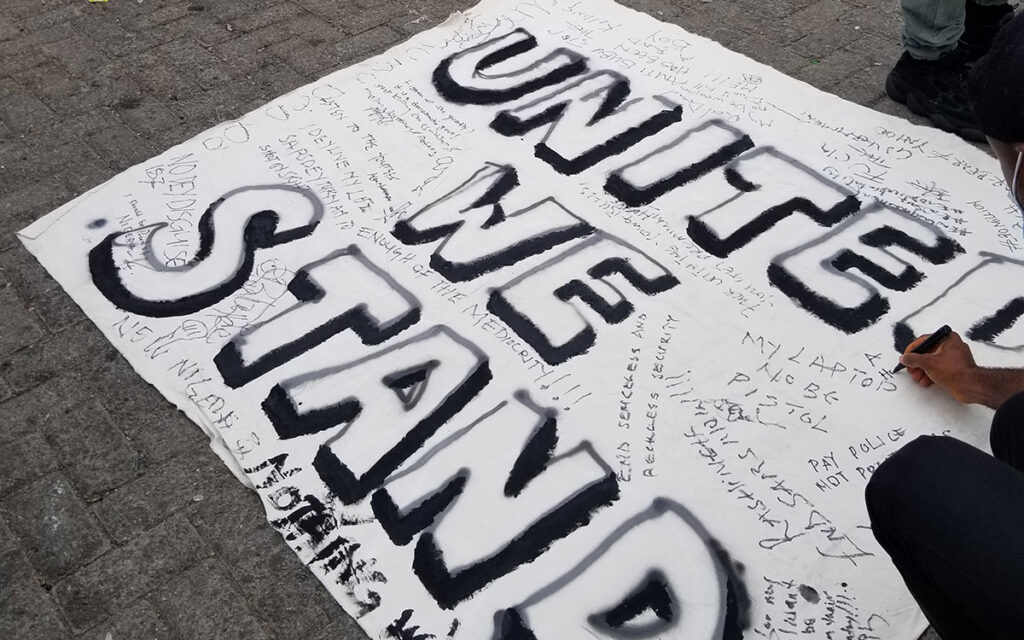After service in church last Sunday, my brothers (Paul and Yomi) asked me this question and my answer was “Yes, I can’t think of any technical limitation“.
So, I thought I should expand on my answer to highlight some of the things we need to put in place if we’re going to have e-voting in Nigeria sometime soon.
-
Identification
Eligibility will be based on uniquely identifying every Nigerian, but how do we go about this when we don’t even have an individual national identification number system?
– Let’s start by merging all the national data we have first – NIMC, Drivers License, International Passport, BVN, NCC Sim registration, INEC Voters registration, Tax Identification Number, etc.
– Provide an interface for people to verify their information (what happened to that app for NIN?) (I also think USSD verification will go a long way – we already do this for BVN – considering internet penetration and adoption is still a thing) and walk-in centers in LGAs where people can register or update their information. Government can even partner with existing orgs like banks, telecom providers as centers for data capture.
-
Technical Requirements
Of course, this is going to be driven by software, hardware, and network. Security and auditability needs to be built-in to ensure votes are recorded and stored as casted and procedures to detect fraudulent submissions or tampered hardware/network are in place.
There are e-voting manufacturers and OEMs that the government can even partner with as well as understudy existing systems that work.
-
Logistics
Deploying solar-powered internet-enabled kiosks esp. to rural areas shouldn’t be a hassle as well. I mean, we distribute electoral materials to the 774 local governments already, in this case instead of deploying ballot papers and plastics, it will be specialized systems, devices, and papers.
-
Costs & Funds
₦ 250 billion was allocated for 2019’s general elections (which is higher than the 2019 budget of 24 states), we can channel subsequent budgets to e-voting. Maybe it’s time our government officials take that salary cut too.
-
Awareness & Orientation
We can use all our media outlets to educate people on how these will work. Content in local languages and dialects should be generated and distributed via all the means necessary esp. radio. Federal Ministry of Information and Culture (Lai Mohammed 🤦🏽♂️), National Orientation Agency, etc. and private media houses will have the work too. Grassroot volunteer work will also help in door-to-door education.
-
Testing
We can test, learn, and improve electronic voting with small-scale elections before 2023 e.g Bye Elections in Senatorial Districts, Gubernatorial elections in States like Osun in 2022, etc.
Maybe then we can even combine with the existing voting option of ballot papers (backward-compatibility), then phase it out by 2027 or later. Backward compatibility is very key – the US still votes by paper ballots.
-
Policy and Law
There may be required electoral law modifications to enable e-voting, that’s what the Senate is there for right?

Though e-voting has its limitations and concerns, embracing it has a lot of benefits:
- More transparency reduces the chances of electoral fraud and malpractices
- That travel to Jalingo to vote because you registered there during service but now live in Lagos will be unnecessary.
- No need to have people read results like we do, watching ballot counting and tabulation on national TV is tiring. Orubebe can save us the drama.
Google “US election” and see the beauty of data. - Security, accuracy, integrity, swiftness, privacy, auditability, accessibility, cost-effectiveness, scalability, and ecological sustainability
[easy-tweet tweet=”If it’s not broken and works for your pocket, don’t fix it. – Nigerian Politicians” user=”Oluwarufus” usehashtags=”no” ]
While all these sound good and easy, the questions are:
- Do people in power have any motivation/will for this? Obviously, herein lies the biggest problem – political will.
- Will the Nigerian youths that can build, volunteer or vote still be alive (read: yet to be killed or rendered helpless by the cancerous system and its expressions like SARS) or here (read: yet to Japa!)?
3 years (36 months) is enough time to plan and deploy an MVP if we are willing but I doubt if our leaders have such inclination. Plus, if it’s not broken and works for your pocket, why fix it?
[easy-tweet tweet=”Do people in power have any motivation/will for this? Obviously, herein lies the biggest problem – political will.” user=”Oluwarufus” usehashtags=”no” ]
Besides, why don’t we have a lot of e-governance startups in Nigeria? Question for another day, I guess but this will be great to see individuals and startups who will pursue opportunities in the areas I mentioned above.
Thanks for the edit, Joseph and for stirring my thought @paulkapture and @yomiolatunji
One Response